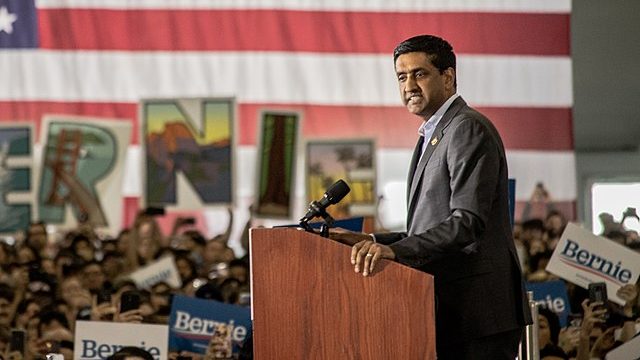California Congressman wants high-paying tech jobs to be the Rust Belt’s future
Khanna writes that, “no person should be forced to leave their hometown to find a decent job. That is foundational to the American promise.”

Courtesy of Wiki Commons
Where you grow up can factor into your educational outcomes and the money you make as an adult. In comparison with America’s coasts, the Midwest is struggling to recreate its economy and attract new people as the country shifts beyond industrialized work.
Some politicians have been focusing on this issue with more fervor than others, but one representative that seems to be focused on the problem doesn’t represent the Midwest. Instead, he lives in California’s Silicon Valley.
This past summer, Congressman Ro Khanna took a tour through the Midwest. He met with workers, union retirees and local officials to try to better understand these spaces — hoping to make our technologically advancing economy work better for more people.
Khanna has a word for this inclusivity, which he calls “Economic Patriotism.”
“In the digital economy, while the digital jobs pay almost $70-80 thousand, if you don’t have one, and you’re working in a warehouse or you’re working in logistics, or in service jobs, those jobs pay, at best, often $15-16 (per hour). So it’s also let to much more wealth disparity.” — Ro Khanna, Congressman and author.
Listen: How to increase high-paying jobs and grow the population of the Midwest.
Guest
Ro Khanna is a congressman representing Silicon Valley. He recently wrote, “Dignity in a Digital Age: Making Tech Work for All of Us.”
Khanna says that tech jobs need to spread to more places in the country because there’s currently too much inequality.
“In the digital economy,” says Khanna, “while the digital jobs pay almost $70-80 thousand, if you don’t have one and you’re working in a warehouse…those jobs pay, at best, often $15-16 (per hour). So it’s also let to much more wealth disparity.”
Trusted, accurate, up-to-date.
WDET strives to make our journalism accessible to everyone. As a public media institution, we maintain our journalistic integrity through independent support from readers like you. If you value WDET as your source of news, music and conversation, please make a gift today.

